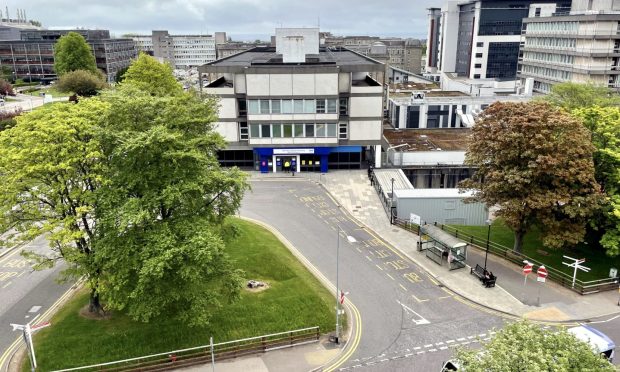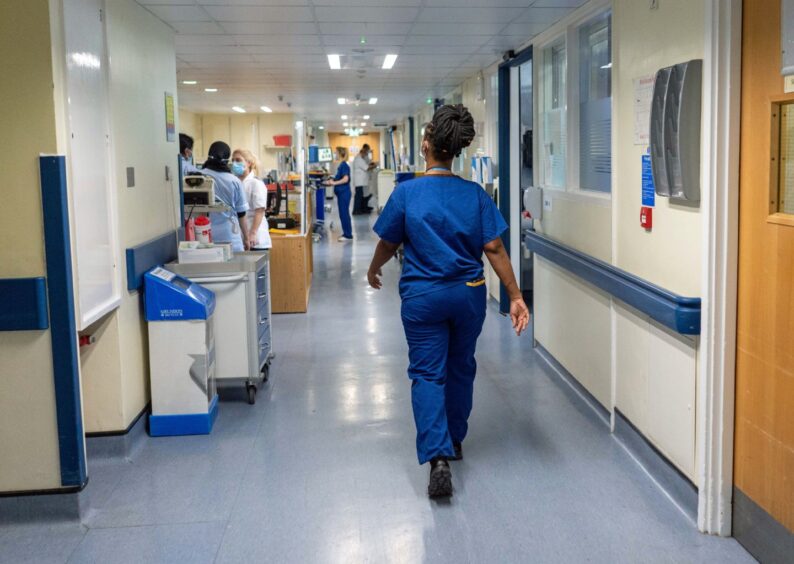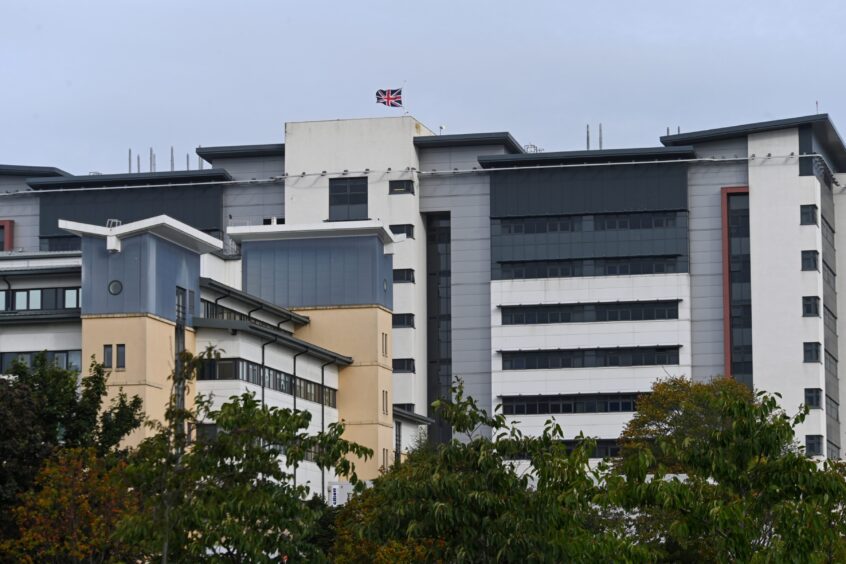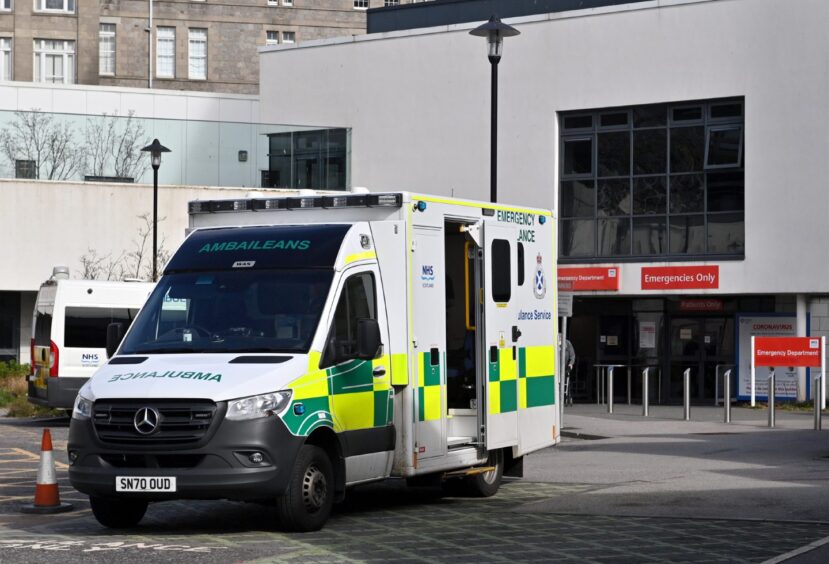A trade union has called on NHS Grampian to declare another “major incident” instead of rolling out a new care plan to get patients seen more quickly.
Today, NHS Grampian launched a scheme at Aberdeen Royal Infirmary which requires ambulances to transfer patients into the emergency department within 30 minutes of arrival, ahead of being assessed by a clinician.
Health officials aim to admit or discharge patients within 30 minutes of their diagnosis.
The roll-out comes just a week after 17 ambulances were left queued up outside ARI last weekend, as pressures on the health board mount.
Last week, Deputy First Minister Shona Robison apologised to patients forced to wait hours for emergency care after it was revealed an ambulance in Grampian spent more than 10 hours waiting outside a hospital.
‘The health board should be honest about the situation’
Today, representatives from Unison called on the north east health board to halt the scheme over fears patients will be put at risk.
The health trade union said they have been working together with NHS Grampian to try to find ways of making this work safely.
However, they believe this initiative will result in unacceptable pressure on already-stressed staff.
They also fear that giving patients in corridors a ‘buzzer’ to attract attention as part of the plan does not guarantee safe practice.
Regional organiser, Simon Watson, says the health board should be “honest” and declare a major incident.
He said: “Nobody likes to see ambulances queueing outside a hospital, but the reason is that there is not enough health staff to provide adequate care. Moving people inside the hospital will not conjure up more people to treat them.
“Instead, hard-pressed staff will be pushed to breaking point, and patients safety will be put at risk. How bad are things when staff are being told to give patients a hand bell to attract attention?
“The health board should be honest about the situation, declare a major incident, and move to prioritise life-threatening cases.”
Aberdeen Royal Infirmary stretched beyond capacity
NHS Grampian officials are due to meet with union reps to discuss their concerns in detail.
Nick Fluck, executive medical director for NHS Grampian, told The Press and Journal today that he cannot deny the pressure the health board is currently under.
He said: “The hospital system is very pressurised and our staff are under a lot of pressure. They are working incredibly hard and we are really proud of them. We want to thank all the staff because we are nothing without them.
“The capacity in the hospital system is not as high as we need it to be.”
Mr Fluck explained that the health board is following three strands of work to ease pressure.
“Firstly, we are making sure that we stream people as well as possible to the right care – whether that’s outpatient care or rapid assessment clinics,” he said.
“The second thing is the hospital does need to have more capacity and we’ve got a programme of increasing the inpatient capacity. A couple of weeks ago we opened an additional 18 beds, and in January we are due to open another tranche of beds.
“At the other end of it, we are working with partners in the social care partnership to reduce the number of people delayed in getting home.”
In response to Unison’s concerns over the new 30-minute roll-out, Mr Fluck said any attempt to put better measures in place is part of ongoing work and a bigger picture.
He said: “This latest bit of work is really about trying to improve the safety of transferring people into the hospital, moving them through the hospital and being able to get them home. You will be well aware of ambulance delays, and that creates anxiety for the public, it puts people potentially in situations which you don’t want them to be in and puts pressure on the ambulance service.
“This isn’t a situation where there is a binary switch on and the world changes. This is improvement work where we are trying to head in a direction, so my expectation is if we get this right, we will move in a positive direction for staff and patients.”
He added: “I want to reassure the public that unscheduled care is here to look after you when you’ve got really significant problems and our absolute desire is to try and improve the access for people and to support our staff to give a level of care that they want to give.
“That would be my key message.”




Conversation